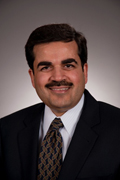Table of Contents
I have no legs
They call me disabled.
Am I?
I have this wheelchair.
Wheels are my legs
They look down at what I have not
And miss out what I have.
For them, I am nothing.
Just objects of pity –
I and my wheelchair
So what? if I have no legs
I have a head to think
And hands to toil
I look at them –
Those disabled minds
To think of me as nothing
I pity them for looking down at me
Even more for not looking down at themselves
God bless them –
Them – the disabled souls.
About the Poem
I wrote this poem when I was in my early 20’s as a student during a physical therapy training program in my native India. I was struck by the number of spinal cord injured patients in a hospital and the lack of adequate care for these patients moved me to write this poem. This poem was written in the early 1980’s before the Americans with Disabilities Act (ADA) was passed in the USA in 1990.
The ADA is a wide-ranging law that prohibits discrimination based on disability. The ADA also requires covered employers to provide reasonable accommodations to employees with disabilities, and imposes accessibility requirements on public accommodations.
Perhaps our society has moved forward in its attitudes toward patients with spinal cord injuries since the early 1980’s. Clearly, advances in spinal cord rehabilitation have improved the quality of life for these patients in 2016. However, I think the sentiments expressed in this poem may still resonate with many. I love words and find poetry is a great way to put an arrangement of words together that resonate in an impactful way what is in the author’s heart, and at the same time convey an important message!
Please note that a slightly different version of this poem was previously published under the same title in O’ Georgia! A Collection of Georgia’s Newest and Most Promising Writers. Volume V: page 129, 2002.
About the Author(s)

Zoher F. Kapasi, PhD
Dr. Zoher F. Kapasi is the Director and Associate Professor in the Division of Physical Therapy of the Department of Rehabilitation Medicine at Emory University. As a member of the board of directors of the American Council of Academic Physical Therapy (ACAPT), Dr. Kapasi is dedicated to advancing the physical therapy profession through fostering excellence in academics and creating innovative strategies that guide students and clinicians in the pursuit of the healing arts. Recognizing the unique vision of JHR, he actively encourages and supports the participation of his faculty and students to contribute to the study of humanities and the ongoing development of the first journal of humanities in physical therapy.

This work is licensed under a Creative Commons Attribution 4.0 International License.

